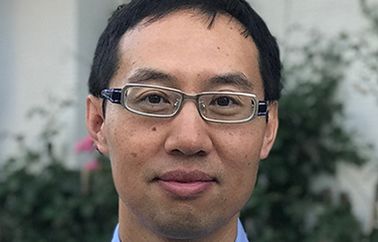PhD in Civil Engineering
Current position: Associate Professor at Zachry Department of Civil & Environmental Engineering, Texas A&M University, United States of America
Research focus: environmental health and safety of engineered nanomaterials, biogeochemistry of emerging contaminants, phytoremediation, ecosystem restoration, water reuse
In the field of environmental nanotechnology, Samuel is studying the transport of nanoparticles in the environment, particularly the uptake, transport, and accumulation of engineered nanoparticles by various plants.
One of Samuel’s goals is to understand the toxicity, accumulation, and bioavailability of nanoparticles to human beings through consumption of edible plants. He is also exploring the potential applications of
nanotechnology in environmental clean-up efforts.
CV as submitted for the Green Talents award (2009):
Southern Illinois University Carbondale, United States of America
Research focus: remediation in the context of bio- and nanotechnology
Xingmao Ma is currently an assistant professor at the Department of Civil and Environmental Engineering at Southern Illinois University in Carbondale in Illinois in the United States. His research interests range from groundwater and land remediation to environmental nanotechnology. He has investigated the role of plants in enhancing contaminant removal from soil and groundwater and is currently expanding this effort to phytomonitoring – the use of plants to monitor contaminant plumes in soil and groundwater. In the field of environmental nanotechnology, he is studying the transport of nanoparticles in the environment, particularly the uptake, transport and accumulation of engineered nanoparticles by various plants. One of his goals is to understand the toxicity, accumulation and bioavailability of nanoparticles to human beings through consumption of edible plants.
He is also exploring the potential applications of nanotechnology in environmental cleanup efforts.Apart from Ma's extraordinary scientific profile with numerous publications, awards, and memberships, the jury recognized the Chinese researcher's broad range of research activities. He has had passive contacts to German scientists in the environmental field in the past, but now hopes to actively invigorate those relationships through his participation in the Green Talents Forum.






